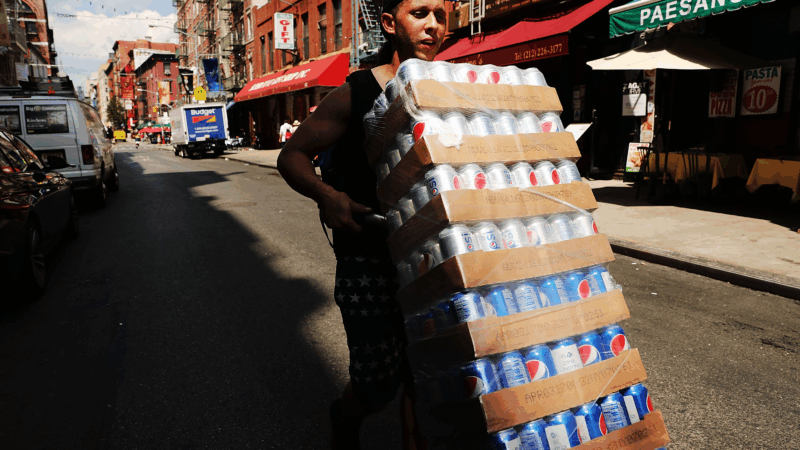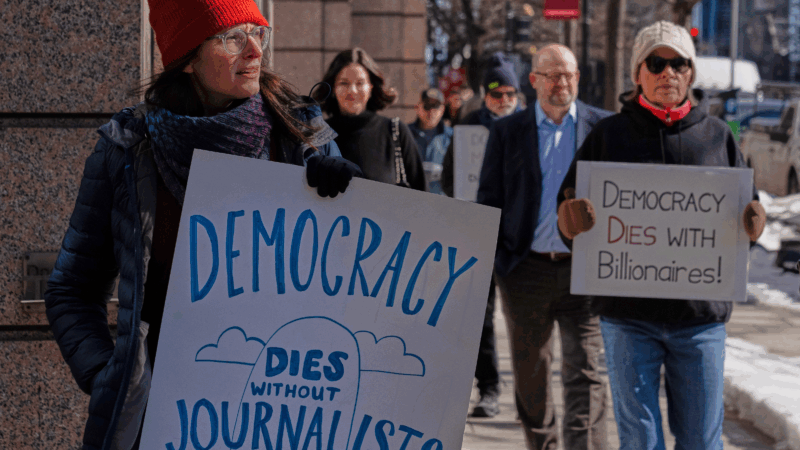You’re more likely to reach for that soda when it’s hot outside
It’s no secret Americans consume too much sugar, according to public health guidelines. Now, researchers have found one possible trigger that pushes people to reach for sweet things: hot weather.
Researchers tracked Americans’ grocery receipts over several years and found that sugar intake rises in the summer — and the spike in consumption is driven largely by consuming more sugary beverages like sodas, energy drinks, and sweetened juices.
Sugar consumption increased slightly with each degree Celsius of warming, the study found.
“As temperatures get higher, people tend to increase their added sugar consumption,” says Pan He, an environmental scientist at Cardiff University and an author on the study, which was published this week in the journal Nature Climate Change.
The study suggests that, unless Americans’ sugar-seeking behavior changes significantly, sugar intake could rise even further in the future as climate change raises temperatures across the country.
By 2100, the average American could take in over a pound of additional sugar per year, according to calculations by Duo Chan, a climate scientist at the University of Southampton and one of the study’s authors.
The study used data that tracked American families’ grocery purchases. The scientists could see what families bought, and when. They then compared those purchases to weather records from their locations.
Sugar consumption went up about 0.7 grams — or about ⅛ of a teaspoon — per day for every degree Celsius hotter it got, on average. Most of that extra sugar, the researchers found, came from sugary beverages.
“It’s kind of intuitive,” says Chan: people need more liquid when it’s hot out, simply to keep themselves comfortable. If they’re accustomed to drinking sugary beverages already, it’s easy to simply drink more. And the data showed that: those who regularly drink sugar-heavy drinks were more than five times more likely to increase their consumption during hot weather.
Sugar isn’t good for health
Public health and nutrition experts have long warned about the risks of increasing sugar intake.
Sugary beverages present a particular concern, says Lindsey Smith Taillie, a nutrition scientist at the University of North Carolina. Such beverages are easy to drink but don’t provide a sense of satiety, or fullness, that would otherwise cue people to stop eating or drinking.
“So drinking sugar is a really fast and easy way to overconsume sugar, specifically, and just consume too much in general,” Smith Taillie says.
Consuming too much sugar has been linked not only to dental problems, like cavities, but also higher risks of diabetes, heart disease, and high blood pressure — and even neurological issues and changes in the gut microbiome, which regulates digestion, says Laura Lara-Castor, an epidemiologist at the Institute for Health Metrics and Evaluation at the University of Washington. And overall, she says, “it has been shown in many, many studies that sugar-sweetened beverages continue to be the single one item that is the main contributor.”
During hot weather, people need to consume more liquids because they sweat more, Lara-Castor says. And the kind of liquids they choose can affect their overall health: Whether they have clean, safe drinking water, or find themselves turning to sugary beverages, out of preference, marketing pressure, or necessity. Sugar intake is affected by culture and social norms, she says. But it’s also affected by public policy, like soda taxes or clean water regulations and accessibility.
Public health policy should prioritize making it easy and free to choose water instead of sugary drinks, Lara-Castor says.
“What do we need to do in order to ensure that [sugar beverages] get replaced by water?” she asks. “How can we promote accessibility to clean and safe water in different settings?”
A hotter future means more sugar consumption?
Americans could consume even more sugar as climate change drives higher temperatures, the study found. Current estimates suggest the planet is on track to warm by 2.7 degrees Celsius by 2100.
If sugar consumption rises at the same rate the researchers identified in the new study, Americans would take in about an extra pound of sugar each year.
Multiplied by the current population of the U.S., that would be the equivalent of more than 4 billion cans of Coke.
That, says Chan, is “quite an astonishing number.”
Edited by Rachel Waldholz
Pentagon says it’s cutting ties with ‘woke’ Harvard, ending military training
Amid an ongoing standoff between Harvard and the White House, the Defense Department said it plans to cut ties with the Ivy League — ending military training, fellowships and certificate programs.
‘Washington Post’ CEO resigns after going AWOL during massive job cuts
Washington Post chief executive and publisher Will Lewis has resigned just days after the newspaper announced massive layoffs.
In this Icelandic drama, a couple quietly drifts apart
Icelandic director Hlynur Pálmason weaves scenes of quiet domestic life against the backdrop of an arresting landscape in his newest film.
After the Fall: How Olympic figure skaters soar after stumbling on the ice
Olympic figure skating is often seems to take athletes to the very edge of perfection, but even the greatest stumble and fall. How do they pull themselves together again on the biggest world stage? Toughness, poise and practice.
They’re cured of leprosy. Why do they still live in leprosy colonies?
Leprosy is one of the least contagious diseases around — and perhaps one of the most misunderstood. The colonies are relics of a not-too-distant past when those diagnosed with leprosy were exiled.
This season, ‘The Pitt’ is about what doesn’t happen in one day
The first season of The Pitt was about acute problems. The second is about chronic ones.







